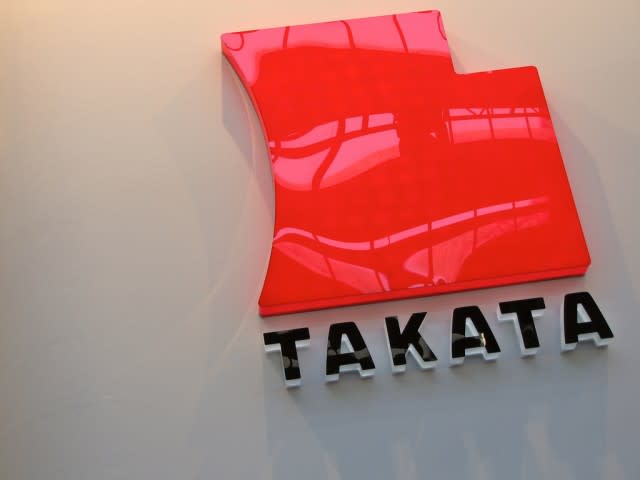Takata formally admits guilt, agrees to $1 billion settlement

It's been over a month since we heard about Takata's proposed billion-dollar settlement to end an investigation by U.S. officials into charges of criminal wrongdoing. Yesterday in Detroit, District Court Judge George Steeh formally approved that proposal.
Most of the funds that Takata ponies up--around $850 million--will be allocated to automakers to help them pay for costs associated with the long, drawn-out recall of fatally flawed airbags. Another $125 million will go to Americans injured by the devices or, in the case of those killed, to their families. The remaining $25 million will be paid to the federal government in the form of fines.
The good, the bad
As expected, the good news is that part of the settlement involves a formal guilty plea: Takata will admit to hiding evidence of failed airbag inflators for some 15 years. That could give individuals and organizations suing the company plenty of leverage in court.
The bad news is--at least according to some observers--the settlement complicates the question of whether automakers are partly to blame for the widespread use of Takata's airbags.
Lawyers representing vehicle owners injured by Takata's exploding airbag inflators and family members of the deceased say that car companies knew of the devices' flaws but used them anyway because they were cheap. By placing blame for the airbags solely on Takata, the settlement makes it harder for lawyers to sue automakers for damages.
Not surprisingly, automakers categorically deny that they knowingly used unsafe devices in their vehicles.
What now?
Judge Steeh said that he could've fined Takata up to $1.5 billion, but that doing so would've likely pushed the precariously positioned company over the edge, into bankruptcy. That would've caused delays in the supply of replacement airbag inflators needed to carry out the largest automotive recall in U.S. history.
That's not so say, however, that Takata won't restructure. In fact, the company's chosen buyer, Key Safety Systems, would really, really like to see Takata go through bankruptcy before it signs on the dotted line. If Takata doesn't do so, Key's investment could be at risk in any number of civil lawsuits against Takata.
Will Takata take the plunge and agree to restructuring? Or will it stick to its guns and protect its current investors, over the objections of nearly everyone else? Stay tuned.
It's been over a month since we heard about Takata's proposed billion-dollar settlement to end an investigation by U.S. officials into charges of criminal wrongdoing. Yesterday in Detroit, District Court Judge George Steeh formally approved that proposal.
Most of the funds that Takata ponies up--around $850 million--will be allocated to automakers to help them pay for costs associated with the long, drawn-out recall of fatally flawed airbags. Another $125 million will go to Americans injured by the devices or, in the case of those killed, to their families. The remaining $25 million will be paid to the federal government in the form of fines.
The good, the bad
As expected, the good news is that part of the settlement involves a formal guilty plea: Takata will admit to hiding evidence of failed airbag inflators for some 15 years. That could give individuals and organizations suing the company plenty of leverage in court.
The bad news is--at least according to some observers--the settlement complicates the question of whether automakers are partly to blame for the widespread use of Takata's airbags.
Lawyers representing vehicle owners injured by Takata's exploding airbag inflators and family members of the deceased say that car companies knew of the devices' flaws but used them anyway because they were cheap. By placing blame for the airbags solely on Takata, the settlement makes it harder for lawyers to sue automakers for damages.
Not surprisingly, automakers categorically deny that they knowingly used unsafe devices in their vehicles.
What now?
Judge Steeh said that he could've fined Takata up to $1.5 billion, but that doing so would've likely pushed the precariously positioned company over the edge, into bankruptcy. That would've caused delays in the supply of replacement airbag inflators needed to carry out the largest automotive recall in U.S. history.
That's not so say, however, that Takata won't restructure. In fact, the company's chosen buyer, Key Safety Systems, would really, really like to see Takata go through bankruptcy before it signs on the dotted line. If Takata doesn't do so, Key's investment could be at risk in any number of civil lawsuits against Takata.
Will Takata take the plunge and agree to restructuring? Or will it stick to its guns and protect its current investors, over the objections of nearly everyone else? Stay tuned.

 Yahoo Autos
Yahoo Autos 
